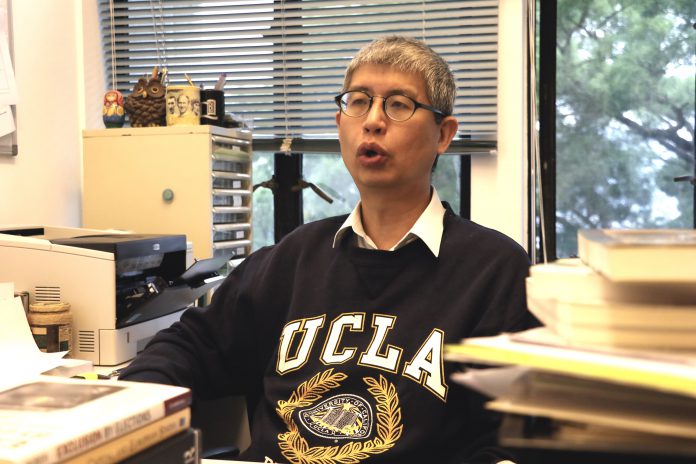By Crystal Wu
Varsity spoke to Ma Ngok, an associate professor at the Department of Government and Public Administration at the Chinese University of Hong Kong, about his thoughts on Sunday’s by-elections for two seats in the Central and Western District Council.
Peak constituency
Ma predicts the pro-establishment camp has a high chance of winning the Peak Constituency. He points out that the Peak Constituency is one of the wealthiest districts in Hong Kong and its voters are senior civil servants or wealthy individuals. Independent candidate Edward Chin Chi-kin was a high profile supporter of the Occupy Central movement, which might make him less popular with this group of voters. Ma thinks this gives the Liberal Party’s Jeremy Young Chit-on the edge in this two-horse race.
Tung Wah constituency
Lui Kam-keung is campaigning as an independent candidate, but Ma believes voters are sensible enough to see that no one is ‘independent’ in this three-way race. Ma says voters can tell which camp a candidate is in by the people who are endorsing them, and in Lui’s case, it is the Democratic Alliance for the Betterment and Progress of Hong Kong (DAB).
“The crux of this election is whether Principal Lui can effectively receive the ‘iron’ votes of the The DAB,” says Ma.
Ma says there have been cases where a party whose incumbent resigned to take up a post in government has lost its seat in the subsequent by-election.
He thinks the fact the Democratic Party has its own base in the district is advantageous to its member Bonnie Ng Hoi-yan. She faces an additional challenge from former Labour Party member Olivia Lau Shu-yin, who was accused of vote-splitting in the previous District Council election. But Ma does not believe Lau will succeed in splitting many votes from Ng.
“I think the voters have enough sense,” Ma says. “Even though she was a Labour Party member, it is useless as there won’t be any pan-democrats endorsing her.”
Ma on the atmosphere and turnout rate
Ma believes that by-elections tend to favour the pro-establishment camp. This is because in a by-election, the pro-establishment side can consolidate its people and resources to secure a seat.
Ma also predicts the turnout rate this year will be slightly higher than in 2015, because both the pan-democrats and the pro-establishment camp have poured more resources into this by-election.
Edited by Jessica Li










































